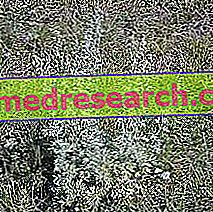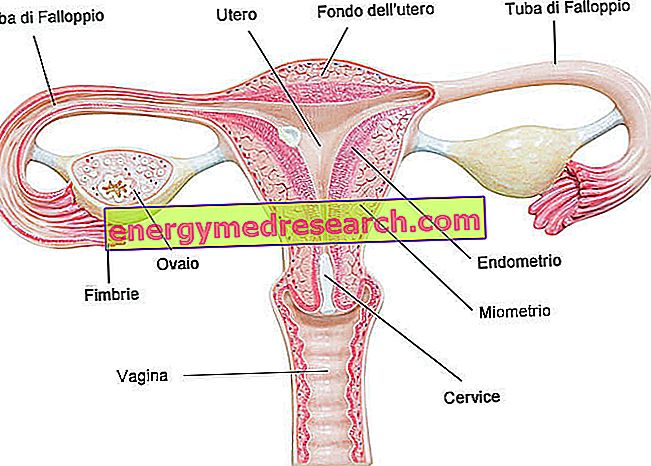
Scientific name
Artemisia absinthium L.Family
Asteraceae (Compositae)Origin
EuropeSynonyms
Wormwood
Used Parts
Drug consisting of flowering tops ( Official Pharmacopoeia )Absinthe - chemical constituents
- Essential oil rich in ketones (tuione) and terpenes;
- Sesquiterpene lactones;
- Bitter substances (absintina);
- Flavonoids;
- Tannins.
Absinthe in Herbalist: Property of Absinthe
The peculiar properties of absinthe are bitter-tonic and digestive, which make it a constituent of numerous bitters and digestives (Vermouth).
Absinthe is used to stimulate the appetite, in disorders of the digestive tract, especially in the case of hypochloridria or gastritis with reduced production of gastric juices. The essential oil of wormwood combines the known digestive properties with a carminative and antispastic action on the intestinal and biliary levels.
Biological activity
The typical digestive properties of absinthe are attributable to the essential oil and the bitter substances contained within it.
Absinthe is also endowed with cholagogic properties and for this reason it can be useful to counteract the dyskinesias of the biliary tract which, in turn, can lead to the onset of digestive disorders. The use of this plant, in fact, has been officially approved precisely for the treatment of these types of disorders.
Moreover, numerous studies have been carried out on wormwood to determine its antiparasitic activity - and, in particular, to evaluate its anthelmintic activity - against different types of parasites. From the various researches conducted, it seems that the compounds present within the wormwood explain their anthelmintic action causing damage from free radicals to the cell membranes of the same parasites which, therefore, undergo certain death.
Absinthe to aid digestion
As mentioned - thanks to the bitter-tonic and cholagogue properties attributed to the essential oil and the bitter substances contained in the wormwood - this plant can be used to promote digestion, as well as to promote the bile flow and to stimulate the appetite.
Absinthe is available in the form of liquid extract or essential oil, or it can be found inside dietary supplements in capsules that usually contain the powdered (flowering top) drug.
The plant's drug can also be used to prepare infusions. Generally, the infusion is prepared using 1-1.5 grams of flowering tops on which about 150 ml of boiling water are poured. The infusion thus obtained can be taken up to three times a day.
Absinthe in folk medicine and in homeopathy
Absinthe is used as a remedy against numerous ailments and diseases in folk medicine. In fact, it is used internally for the treatment of stomachache, gastritis, gastric insufficiency, anemia, some liver disorders, intermittent fever and as a remedy to counter worm infestations, to promote regularity of the menstrual flow and to stimulate the appetite.
Externally, on the other hand, absinthe is used in folk medicine as a remedy for skin blemishes and insect bites, as well as being used to promote wound healing and to treat skin ulcers.
In homeopathic settings, on the other hand, absinthe is used against epileptic seizures and hysterical convulsions.
Side effects
Important side effects of the plant are nausea, vomiting, diarrhea, abdominal cramps, vertigo headache and convulsive crises (caused above all by the tujone contained in the plant, a substance endowed with convulsive activity, as well as a certain toxicity).
In addition, allergic reactions (pollinosis) in sensitive individuals are also common.
Contraindications
Avoid the use of absinthe in case of gastritis, peptic ulcer, epilepsy, ascertained hypersensitivity to one or more components.
The use of wormwood is also contraindicated during lactation and during pregnancy, due to the potential abortive activity that the plant itself possesses.
Pharmacological Interactions
- Amari ;
- Hormonal therapies ;
- Neurostimulant drugs ;
- Anticonvulsants, since the concomitant administration of wormwood could decrease their effectiveness.
Absinthe - Warnings
Absinthe-based infusions are particularly bitter, so it is best to use the plant as a fluid extract: 20-30 drops in water half an hour before meals.
At high doses and for prolonged periods it is potentially neurotoxic.



